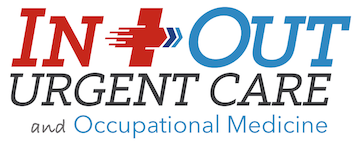Sprains and strains are two common types of injuries affecting everyday people, athletes, and physically active individuals. Although these injuries may appear similar to the untrained eye, they impact different parts of the body and require specific treatment approaches to aid in recovery and prevent complications. Effectively differentiating between a sprain and a strain and understanding your recovery options can expedite your return to normal activities and minimize discomfort.
We are an affordable healthcare provider offering trusted care and support for various non-life-threatening conditions, including sprains and strains. With convenient locations in New Orleans and North Shore, their knowledgeable teams of healthcare professionals are experienced in treating a wide range of injuries and designing personalized care plans to ensure a safe, efficient, and comfortable recovery.
In this blog article, we will delve into the distinctions between sprains and strains, discuss practical prevention strategies, and provide guidance on how to identify warning signs of an injury. Furthermore, we will highlight the advantages of seeking expert care at In & Out Urgent Care to manage your injury effectively and restore your ability to engage in daily activities.
Embark on a successful recovery journey with our dedicated team. Trust our expertise in providing personable and compassionate care, and look forward to regaining your health through professional, effective treatment.
Identifying the Signs of Dehydration
One of the significant concerns for individuals experiencing gastroenteritis is dehydration. Loss of fluids due to diarrhea or vomiting can lead to various symptoms that should not be taken lightly:
1. Thirst
2. Dark-colored urine
3. Infrequent urination
4. Dry mouth, eyes, or skin
5. Fatigue
6. Dizziness or lightheadedness
7. Rapid heartbeat or breathing
Noting these symptoms is critical in managing dehydration early and preventing complications from arising.
Tips for Maintaining a Healthy Balance during Gastroenteritis
Lifestyle adjustments and concerted efforts to maintain health during a bout of gastroenteritis are crucial for a swift recovery:
1. Eating small, frequent meals: Consuming smaller, more manageable portions can help keep your meals down, ensuring your body receives essential nutrients.
2. Avoiding known irritants: Steer clear of caffeine, alcohol, nicotine, and heavily spiced or fatty foods, as these can exacerbate gastroenteritis symptoms.
3. Staying active: When feeling up to it, engage in mild physical activities such as walking or stretching. Consult your doctor before resuming your regular exercise routine.
4. Mental well-being: Stress management techniques, including deep-breathing exercises, meditation, or seeking support from friends and family, can help alleviate anxiety and promote recovery.
Adopting these healthy habits contributes to an efficient recovery process and enables the restoration of daily routines faster.
Care for Vulnerable Individuals
Certain groups of individuals may be more vulnerable to complications arising from gastroenteritis. Focus on children, the elderly, or those with weaker immune systems is essential:
1. Addressing dehydration: Administer oral rehydration solutions (ORS) for children and older adults to replace lost fluids and electrolytes rapidly.
2. Monitoring symptoms closely: Be vigilant for signs of severe dehydration, worsening fever, or severe abdominal pain, as these may indicate a need for urgent medical care.
By paying special attention to vulnerable individuals, you can ensure they receive the care they need to recover safely from gastroenteritis.
Post-Recovery Care and Lifestyle Adaptations
Gastroenteritis recovery may require certain post-illness lifestyle changes, particularly for individuals with compromised immune systems:
1. Personal hygiene: Maintain good hand hygiene by washing hands thoroughly with soap and warm water, particularly after using the restroom, handling food, or touching surfaces in public spaces.
2. Food safety: Practice proper food handling techniques, including washing produce thoroughly, cooking meat to the recommended temperatures, and storing food safely.
3. Vaccinations: Ensure you and your family members are up-to-date on vaccinations, such as the rotavirus vaccine for young children.
4. Be considerate of others: If you contract gastroenteritis, take precautions to prevent the spread of infection to others by avoiding close contact, covering your mouth when coughing or sneezing, and refraining from food preparation or shared meals.
Through these post-recovery care steps and lifestyle adaptations, you can reduce the likelihood of future gastroenteritis episodes and promote long-term health.
Conclusion
Awareness of gastroenteritis symptoms, causes, preventive measures, and adherence to suitable at-home treatments and necessary lifestyle adjustments will set you on the path to efficient recovery. For those experiencing severe symptoms or at high risk of complications, we are ready to provide top-notch care and guidance in your battle against gastroenteritis.
Rely on In & Out Urgent Care’s personable, affordable, and convenient urgent care in New Orleans, LA. Rest assured that our team of professionals will work diligently to assist you in regaining your health and returning to an active, fulfilling life.

